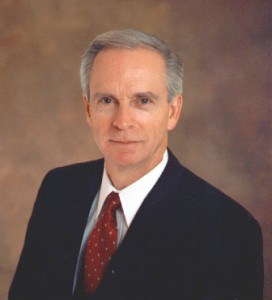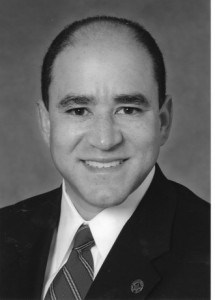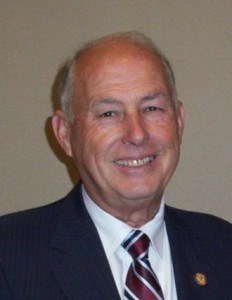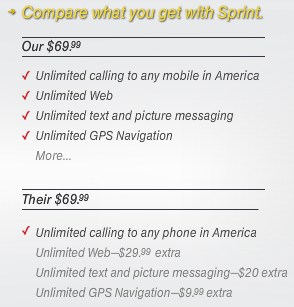Despite hundreds of consumer complaints from residents in and around Baton Rouge, the Louisiana Public Service Commission has refused to vote itself the authority to threaten AT&T with a fine up to $175,000 for poor service.
Ignoring an agreement by AT&T to adhere to minimum service standards in return for permission to acquire BellSouth Corporation in 2006, the Commission oddly decided not to enforce those conditions for the protection of AT&T customers. On Wednesday, in a 3-2 vote, the PSC instead decided to “study” the matter and to further consider whether or not it should impose the same minimum service standards on all of Louisiana’s phone companies.
Commissioner Foster Campbell, of Bossier Parish in northern Louisiana, was stunned by the vote’s results.
“You’re telling AT&T that no matter what they do, no matter how bad their service, we’re not going to do anything?” he asked.
Campbell told his fellow Commissioners he’s worn out after taking large numbers of calls from upset residents in northern Louisiana.
This is the second time the PSC refused to fine AT&T and instead “study” the matter. Meanwhile, customer complaints from the Baton Rouge area continue to pour into the PSC offices.
Commissioner Jimmy Field, who represents the Baton Rouge area, told AP his office had been swarmed with consumers complaining about the length of time to get service installed and outages lasting more than 24 hours. Field wanted the PSC to hang the fine over AT&T’s head again.
Complaints against AT&T in Louisiana also involve lengthy waits for repair call appointments, delays in getting new lines installed, missed appointments, and extended service outages.
In just four months last summer, the Commission confirmed 435 of the 778 complaints lodged across the state against AT&T.
Apparently if the problems don’t impact the residents you represent, there isn’t a problem.
The three commissioners that voted against the proposal to potentially fine AT&T said as much.
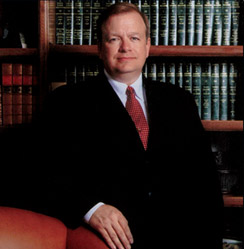
Skrmetta was the ringleader of the three opposed to potentially fining AT&T. He serves District 1 in east Louisiana
PSC Commissioners Eric Skrmetta, of Metairie, Lambert Boissiere III, of New Orleans, and Clyde Holloway, of Forest Hill said it wasn’t fair to single out just one company.
Skrmetta went further and said he hadn’t seen many complaints in his district, north of Lake Pontchartrain. But he had received complaints about some of AT&T’s competitors.
Boissiere, despite voting against the proposal, delivered a verbal spanking to the AT&T representative on hand.
“I don’t like your methods. I don’t like your style. I understand where my fellow commissioners are coming from,” Boissiere said.
Debbie Canale, the executive director for regulation for AT&T Louisiana, wasn’t much impressed with Boissiere’s comments.
“Our customers vote with their money and would do business with competitors, if they were unhappy with AT&T,” Canale offered.
Our Take
The three commissioners who voted against giving themselves the power to make their regulatory authority count don’t belong on any Public Service Commission. Any member of a review board should be concerned first and foremost with the interests of the residents they represent. The three Louisiana commissioners who voted against the proposal failed to do that. They should be removed immediately.
The only way to impress telecommunications companies under your review is to have the power to make them pay attention to your rulings. Stiff fines for repeated violations (and 435 in just four months is an incredible number) will make any company sit up, take notice and fix problems.
Without it, verbal scoldings are little more than lip service to a provider that can afford to be arrogant, especially in rural Louisiana where competitive choice is hardly bountiful.
Canale’s response to the Commission boils down to, “if you don’t like our service, leave.” If only every Louisiana resident could choose another landline provider if they wanted.
Ignoring a company’s problems in one region of the state virtually guarantees those problems will eventually visit another. It is short-sighted and inexcusable to ignore hundreds of valid complaints, condemning residents to more of the same in the future. Voting (for a second time) to “study” the issue is an insult to residents and little more than a stall tactic.
The Commission’s suggestion it wants to impose regulatory fairness comes despite a clear agreement, less than four years old, that AT&T signed onto as part of its buyout of BellSouth. It says AT&T will commit to certain standards of service in return for regulatory approval of the merger. AT&T already sought to renege on that agreement in mid-2009 when it asked the Commission to suspend fines as part of their “study” about regulatory policies across the state.
So much for that hard-fought consumer protection deal. Evidently, what AT&T agrees to one year is fodder for their lobbyists the next. If AT&T wants changes, can consumers demand some changes of their own that assure this company will provide quality service?
As usual, AT&T’s regulatory affairs never give consumers a good deal. For 435 residents of Louisiana, it also gave them no dial tone and a lengthy wait to get it back.
At for Commissioners Skrmetta, Boissiere and Holloway, the only question that should be on the table is whether they represent residents or AT&T Louisiana.
That is something worthy of careful study.


 Subscribe
Subscribe

